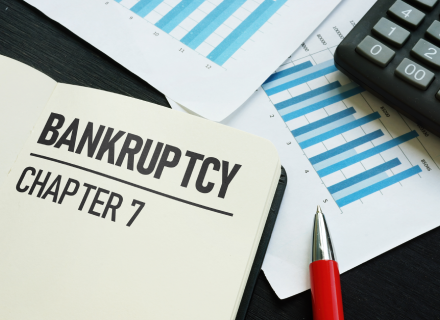When you file for bankruptcy, you can’t escape the possibility of taking a major hit on your credit score. The downside of such occurrence comes in form of your chances of getting competitive rates on loans and credit cards challenging.
It will take some time to rebuild your credit score post-bankruptcy, so practising patience will be key here. And at the same point of time, instead of sitting idly and leaving everything on the fate, you need to make calculated moves to ensure that your credit gets rebuilt.
Here are the seven tips that will help you rebuild your credit after Chapter 7 or Chapter 13 bankruptcy:
Check Credit Report
Check your credit records for unpaid bills. After you discharge your obligations, your credit record may take 60 days to update. Be mindful of your debts. Make sure that the credit bureaus have marked your account “discharged.”
Contest credit record errors with the credit bureaus. Legally, credit reporting companies must investigate and respond within 30 days.
Learn how to access your credit report on the FTC website.
Resolve Debts
Your monthly revenue should guide your budget. Reduce your spending and save to pay off debts gradually.
Authorise Credit Card Use
Be an authorised user of a credit card with acceptable payments. Request that a family member allow your credit card use. This can boost your credit score by improving your payment history.
Use New Credit Cards Responsibly
After bankruptcy, don’t overspend on a new credit card or you’ll get into debt again. Use your cards only for what you can afford and pay off the debt in full. Avoid interest by paying your bill inside grace time. On-time payments increase your credit score by 35% from your payment history.
Finally, avoid credit card maxing. To increase your credit score, keep your credit utilisation ratio below 30%.
Get A Secured Card
You don’t need a certain credit score for a secured card. If you default, the credit card company will keep your security deposit. Your security deposit determines your credit limit.
Protect Credit With An Emergency Fund
Having an emergency fund helps with unforeseen bills. If you can’t pay, use your emergency money. First, set up a monthly amount and then budget. Most financial experts recommend saving five to six months of spending in an emergency fund.
Use Loans/Credit-Builder Accounts
Cosigners can help you get a small personal loan to rebuild credit. With a cosigner, lenders may approve your loan application quickly because they provide legal and financial support. Use the loan to restore your home, fix your car, or start a passive investing portfolio. Once you start paying on time, your score will rise.
Another option is a credit-builder loan. A bank holds your money in an account until you pay off this secured installment loan. You can choose a 12- or 24-month loan term and qualify even with bad credit. By making monthly payments on schedule, your credit score will rise.

